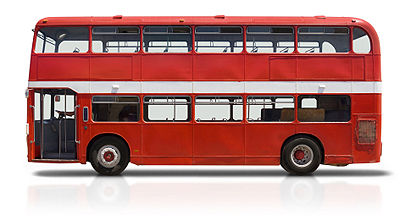In an unguarded moment you may have found yourself gazing at the bar-code printed on the side of your groceries and you may have wondered how the bar-codes are allocated. Common sense tells us that there must be a different bar-code worldwide for every product – even down to its size and colour. To avoid chaos, the retail industry itself introduced regulation and allocated bar-codes to products worldwide. The lowest bar-code is used by a company in Hong Kong and the highest is used by one in Malaysia. Products in Britain normally start with 50. The regulated system works – without it, none of the advantages of automated point-of-sale would be realised.
Since people first traded there has been regulation – the two go together. As the nature of trade becomes more sophisticated, so too has the complexity of regulation. From the baker’s dozen to OFCOM, regulation has been the companion of trade down the centuries.
Thinkers since Adam Smith have debated the role of regulation in the economy – how light/strict should the regulation be? What form should the regulatory framework take? What authority should control the regulation? The present heated debate about regulation in the transport industry clearly demonstrates that consensus and resolution are not in sight.
 When the bus industry outside Greater London was deregulated in 1988 the whole industry had convulsions. Although many pointed to the benefits of the change that resultant competition brought, others highlighted the predatory pricing, lack of co-ordination of timetables, and the reduction of socially desirable yet economically unviable bus services.
When the bus industry outside Greater London was deregulated in 1988 the whole industry had convulsions. Although many pointed to the benefits of the change that resultant competition brought, others highlighted the predatory pricing, lack of co-ordination of timetables, and the reduction of socially desirable yet economically unviable bus services.
Essentially, the problem of uncontrolled bus operation can be described as – who pays for the bus stops? Bus stops are the gateway into bus transportation – like fresh fruit and vegetables are the gateway into supermarkets. It is vital for the bus industry that bus stops are made welcoming, that general service information is available, and the waiting time for the next bus is indicated. It is not in the interest of individual bus companies to pay for improved bus stop facilities if any other company can use them too – and pay nothing.
It is tempting for local government to pay for bus stop facilities but bus companies may change their routes almost at will, so we could end up with excellent bus stops with no buses stopping at them. Local government could sign agreements with bus companies on the basis that excellent bus-stops will be provided so long as the bus operator guarantees a quality of service for a number of years. Yet the problem remains as other free-loading bus companies could still use the facilities.
Local government has had success in providing improved bus stop facilities in conjunction with co-ordinated services from bus companies but only on non-commercial routes. It is ironic that, outside Greater London, the best roadside bus stop facilities are to be found, not on the busy popular routes but on routes maintained by the council for social reasons. The regulatory system is not working efficiently.
Twenty years on, the government has promised a review of the regulatory framework to discover whether the regulations need to be changed, and if so, to what extent.
I believe that an honest government can only reach one decision – that the regulatory framework introduced in 1988 (even though it has been amended since) was far too lax and that a new stricter framework needs to be installed. My evidence for this is that when the government reviewed the bus industry in Greater London it decided against copying the system in use across the rest of the nation. Instead, a strict regulatory framework was maintained and the state kept responsibility for bus services with bus provision out-sourced to the private sector. No doubt the government did not want to risk the chaos which occurred in Greater Manchester being visited on Greater London.
The merits of regulating bus services (as opposed to coach services) at a national level has not been made. Safety and pollution may be deemed to be a national, indeed international, issue, but I see little reason why bus services cannot be regulated by county councils. Within a very liberal national framework, each county could find a different balance between the free market and state control, learning from the experience of others. Achieving a quality bus service at the lowest cost should be our goal, pragmatic, incremental improvements should be the method by which we get there.
The retail industry could not have made its dramatic savings in stock and delivery costs without automatic point-of-sale equipment and such equipment could not have been introduced without the regulatory framework that bar codes represent. We can achieve better bus services at lower cost by introducing clearer, tighter regulation at the local level. The question is can our national government deliver on devolving decision making to local people?
0 Comments View now